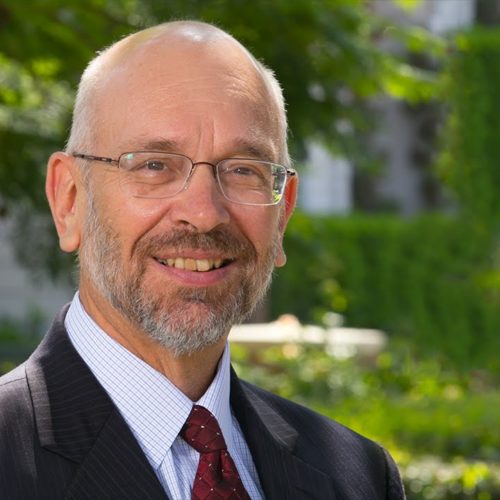In China from a U.S. Policy Perspective, Eric J. Heikkila explores a truly important question that has not been adequately analyzed to date: how the rise of China alters the context in which the broad spectrum of policies in the United States should be assessed. Here, the policy domain of the U.S. government is carved into three broad spheres:
 economic policies: fiscal policy and deficits, trade policy, and employment and income
economic policies: fiscal policy and deficits, trade policy, and employment and income- sustainability policies: climate change, urban policy, and energy policy
- geopolitical policies: homeland security, defense policy, and foreign relations.
For each domain, Heikkila assesses the key policy issues and tradeoffs, examining how the balance of such tradeoffs shifts due to China’s rise. In doing so, he demonstrates how a rising China exerts its gravitation pull on U.S. policy, not so much through lobbying or negotiation, but through the very nature of its being. A concluding chapter presents a workable synthesis derived from these diverse perspectives.
At a time of increasing tensions, it is all the more important for U.S. policy makers to focus on the many substantive policy questions that are impacted by China’s rise. China from a U.S. Policy Perspective will be of key interest to scholars, practitioners, and students of policy analysis, U.S. politics, Chinese politics, and International Relations.
});
Video is also available on our YouTube channel.
About the Author
 Eric J. Heikkila is a Professor at the USC Price School of Public Policy at the University of Southern California, Los Angeles, where he also serves on the Executive Committee of the USC US–China Institute. Dr. Heikkila is the founding Executive Secretary of the Pacific Rim Council on Urban Development, and has had visiting appointments at Peking University, National Taiwan University, the Chinese University of Hong Kong, Nanyang Technological University in Singapore and the Graduate Research Institute for Policy Studies in Tokyo. Trained initially as an economist, he has a strong record of scholarly publications in urban development and public policy, many with a focus on China. As Director of Global Engagement for the USC Price School of Public Policy, he helped maintain institutional ties with partner institutions in China and elsewhere.
Eric J. Heikkila is a Professor at the USC Price School of Public Policy at the University of Southern California, Los Angeles, where he also serves on the Executive Committee of the USC US–China Institute. Dr. Heikkila is the founding Executive Secretary of the Pacific Rim Council on Urban Development, and has had visiting appointments at Peking University, National Taiwan University, the Chinese University of Hong Kong, Nanyang Technological University in Singapore and the Graduate Research Institute for Policy Studies in Tokyo. Trained initially as an economist, he has a strong record of scholarly publications in urban development and public policy, many with a focus on China. As Director of Global Engagement for the USC Price School of Public Policy, he helped maintain institutional ties with partner institutions in China and elsewhere.




